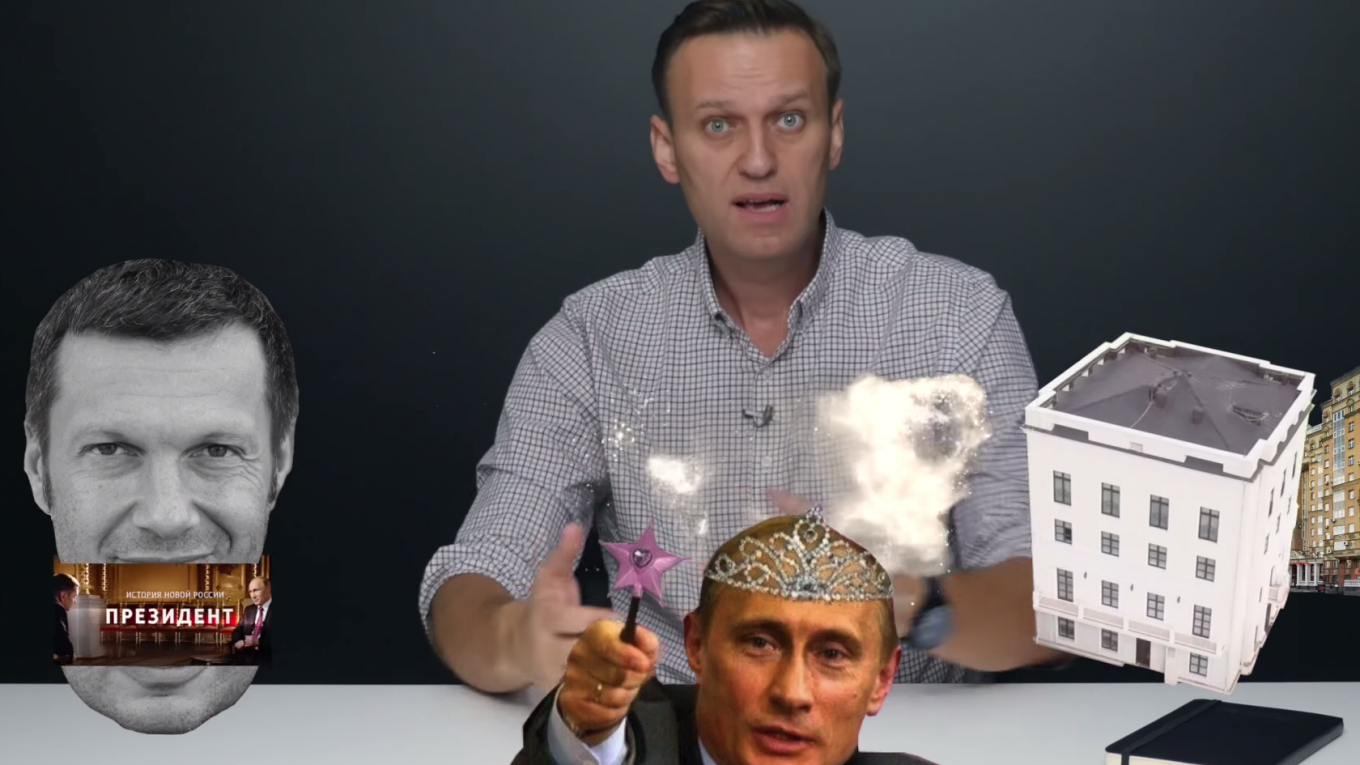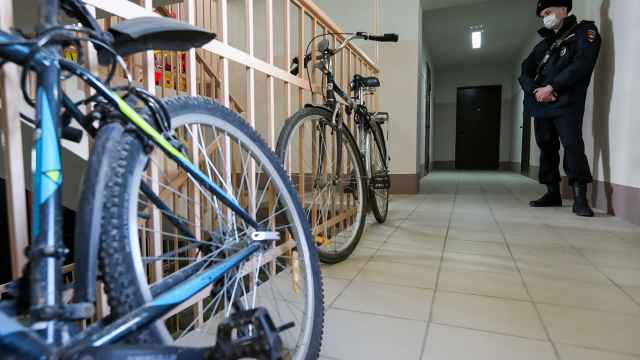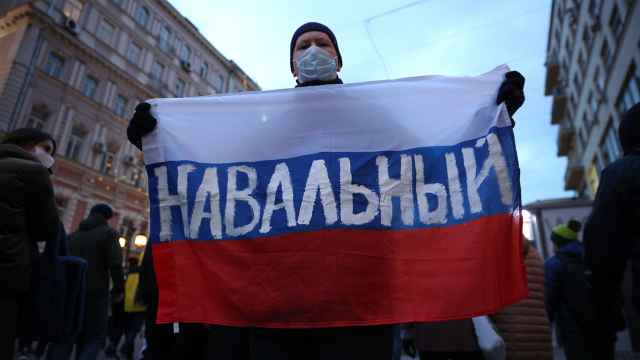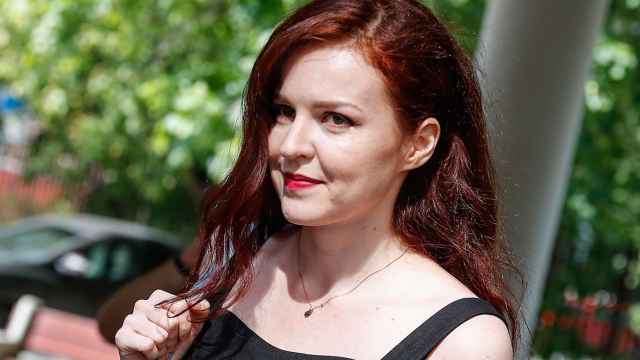Kremlin critic Alexei Navalny, who died in prison Friday, was known worldwide for his investigations into high-level corruption that regularly drew the ire of Russian officials.
In the early years of his anti-corruption crusade, he posted his investigations on LiveJournal and ran a few other websites devoted to uncovering graft and other government failures.
In more recent years, his Anti-Corruption Foundation (FBK) published his exposés as detailed, highly-produced YouTube videos. These videos would garner tens or even hundreds of millions of views.
Here are five of his most impactful investigations:
Chaika
This 2015 video detailed prosecutors’ alleged protection of the sons of Prosecutor General Yury Chaika, Artyom and Igor, as they amassed fortunes assisted by fraud and organized crime. The investigation linked them to five-star hotels in Greece and other luxury properties abroad, the illegal seizure of a state-owned enterprise and even murder.
Artyom was implicated in the expropriation of an Irkutsk shipping company whose director was allegedly strangled and accused of buying Swiss residency, while Igor participated in the apparent rigging of auctions to win lucrative state contracts.
Yury Chaika had led public efforts to crack down on corruption in the 2010s, saying “Fighting corruption is one of the main priorities of state policy at the present time.”
In its first week, the video received 3 million views, and 38% of Russians had heard of it in the weeks following its publication. The punk protest group Pussy Riot made a video highlighting some of the details, featuring uniformed officials gorging themselves and abusing prisoners.
Nonetheless, the Kremlin declined to investigate, with spokesman Dmitry Peskov saying they were “not interested” because Chaika’s sons were “grown-up” and completely independent.
The U.S. sanctioned Artyom in 2017, saying he “has leveraged his father’s position and ability to award his subordinates to unfairly win state-owned assets and contracts and put pressure on business competitors.”
Chaika remained prosecutor general for another five years and remains in government today.
Ducks
Navalny aimed even higher in 2016, investigating the wealth of then-Prime Minister Dmitry Medvedev. The FBK started with a report on a luxurious summer “home” (which was in fact several homes) technically owned by a charitable foundation but often visited by Medvedev and his family.
Using drone footage, the FBK showed, for the first time, a compound with a marina, a ski slope with a lift, multiple helipads and several swimming pools, all surrounded by a six-foot fence. The property had an estimated price tag of 30 billion rubles ($460 million).
One of the ponds on the grounds held a little house for ducks, a detail that went on to capture the Russian imagination.
Yellow rubber ducks soon became a symbol of corruption, leading to comical images of a huge rubber duck being detained by police and a 25-day jail sentence for an activist who displayed a duck in his apartment window.
A 2017 follow-up investigation went further, examining the alleged funneling of money from oligarchs to Medvedev via charitable foundations. They accused billionaire Alisher Usmanov of bribing him with a Moscow house worth about 5 billion rubles ($54.2 million) and linked him to two yachts, estates across Russia and Italian vineyards.
The FBK was hit with several lawsuits following the investigation, while the State Duma declined to investigate its findings. Medvedev remained prime minister until 2020 and now serves as deputy chairman of the Security Council.
Private Jets for Corgis
Another pair of investigations, this time into former First Deputy Prime Minister Igor Shuvalov, found he had an undeclared $62-million private jet that was frequently used to fly his wife Olga Shuvalova’s corgis to international dog shows.
Shuvalova told the FBK that her dogs’ participation in the shows helped “defend the honor of Russia.”
The FBK also found Shuvalov owned Swiss, Austrian, and UK real estate and spent 600 million rubles ($9.4 million) combining 10 apartments in one of Moscow’s Stalinist skyscrapers into a single “tsar-apartment.” A luxury apartment building near his Moscow estate was forbidden to have a single window facing his property.
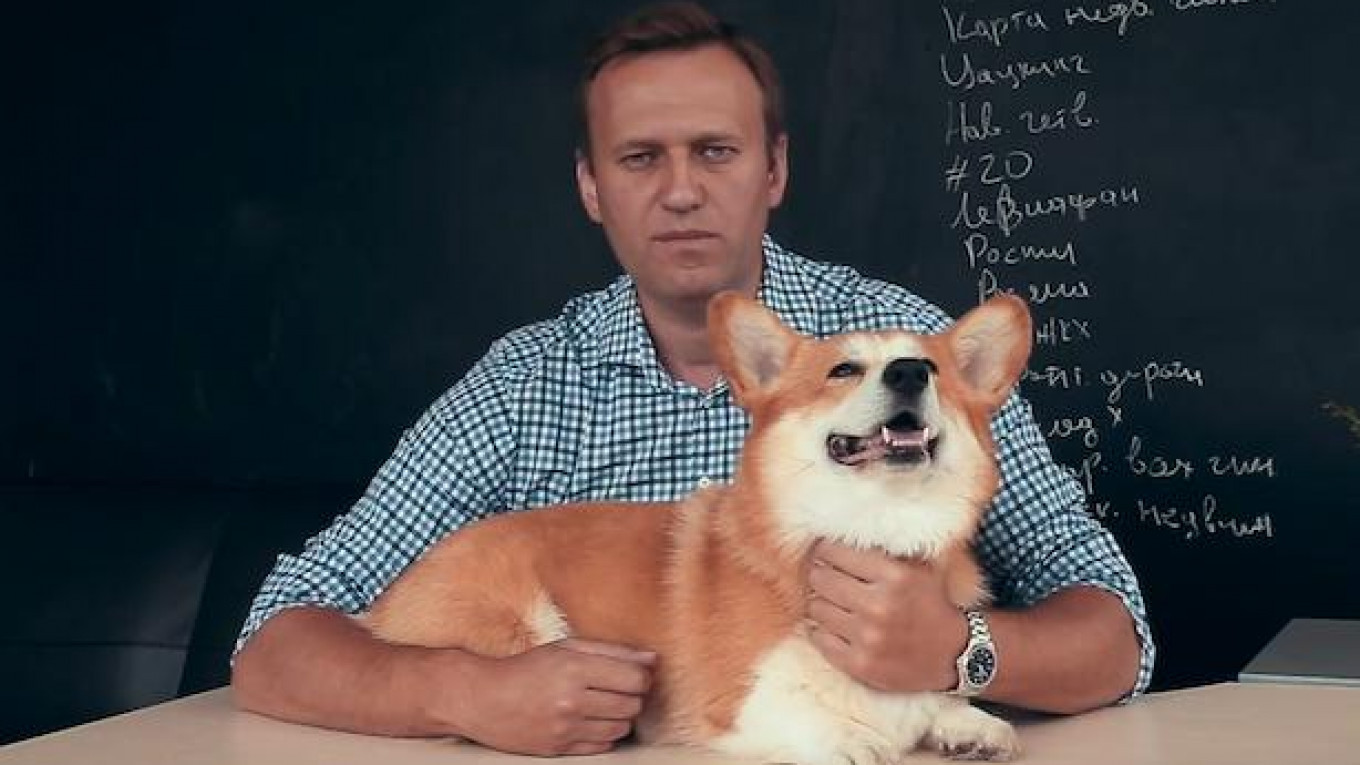
Navalny had investigated Shuvalov before, accusing him in 2012 of graft and accepting money from billionaires Usmanov and Roman Abramovich. In 2013, Shuvalov said that corruption in Russia had been blown out of proportion and that overzealous fighting of corruption might lead to staffing issues in the civil service.
Unlike Chaika and Medvedev, Shuvalov resigned from his post shortly after the 2018 investigation amid a Medvedev cabinet shake-up and was not re-appointed, instead named chairman of Vneshekonombank.
The Poisoning of Alexei Navalny
In December 2020, Navalny published several videos based on an investigation by The Insider and Bellingcat, in collaboration with Der Spiegel, CNN and the FBK, into his own poisoning in Tomsk that August.
Using phone data, flight records and leaked travel databases to show that an elite Federal Security Service (FSB) chemical weapons unit had followed Navalny for three years before the near-fatal poisoning.
Members of a unit specializing in toxins and nerve agents were shown to have flown to the same destinations as Navalny 37 times.
The investigation identified seven operatives commanded by military scientist Stanislav Makshakov and tracked their movements during the trip where Navalny was poisoned. It also uncovered evidence of a clandestine FSB-run chemical weapons program and indications that the poisoning was ordered by high-ranking Kremlin officials.
In a video titled “I called my killer. He confessed,” Navalny personally called one of the men identified as his would-be murderers, posing as a Security Council aide charged with debriefing him on the operation.
The man acknowledged his acquaintance with other identified operatives, said the poisoning would have succeeded if not for the emergency medical intervention and shared that the poison had been administered to the lining of Navalny’s underwear.
The investigation prompted a response from Putin himself, who said the Kremlin had not poisoned Navalny and argued that if they had wanted to kill him, they would have succeeded.
Putin’s Palace
In his last investigation before his imprisonment, published two days after his January 2021 arrest, Navalny published a video investigation of a huge, incredibly expensive palace on the Black Sea allegedly built for Putin, which he called “the world’s largest bribe.”
The palace became public knowledge after a Kremlin whistleblower published an open letter about the project in 2010, where he alleged that money was being diverted from government contracts for the project, but there were no public photos of the palace.
The video, “A Palace for Putin,” presents the 17,700-square-meter palace, which is estimated to have cost at least 100 billion rubles, in vivid detail.
Using drone footage, renderings created using floor plans, photos taken by workers during construction and furniture purchase records, they detailed an immense complex complete with an underground ice rink, a lounge purported to contain a stripper pole, a casino, an Orthodox church and a curiously named akvadiskoteka (aquatic disco).
Kremlin spokesman Peskov denied that Putin owned the palace, and billionaire Arkady Rotenberg, a longtime friend of Putin’s, claimed ownership. Putin himself said he did not own the property and called the video “boring.” Yet the over 100 million views on YouTube, TikTok and elsewhere indicated that others felt differently.
The word akvadiskoteka and a golden toilet brush, a reference to the palace's golden toilet, would go on to become symbols used at protests against corruption and calling for Navalny’s release in early 2021.
Later that year, the FBK would be declared an “extremist” organization and ordered to close.
A Message from The Moscow Times:
Dear readers,
We are facing unprecedented challenges. Russia's Prosecutor General's Office has designated The Moscow Times as an "undesirable" organization, criminalizing our work and putting our staff at risk of prosecution. This follows our earlier unjust labeling as a "foreign agent."
These actions are direct attempts to silence independent journalism in Russia. The authorities claim our work "discredits the decisions of the Russian leadership." We see things differently: we strive to provide accurate, unbiased reporting on Russia.
We, the journalists of The Moscow Times, refuse to be silenced. But to continue our work, we need your help.
Your support, no matter how small, makes a world of difference. If you can, please support us monthly starting from just $2. It's quick to set up, and every contribution makes a significant impact.
By supporting The Moscow Times, you're defending open, independent journalism in the face of repression. Thank you for standing with us.
Remind me later.



